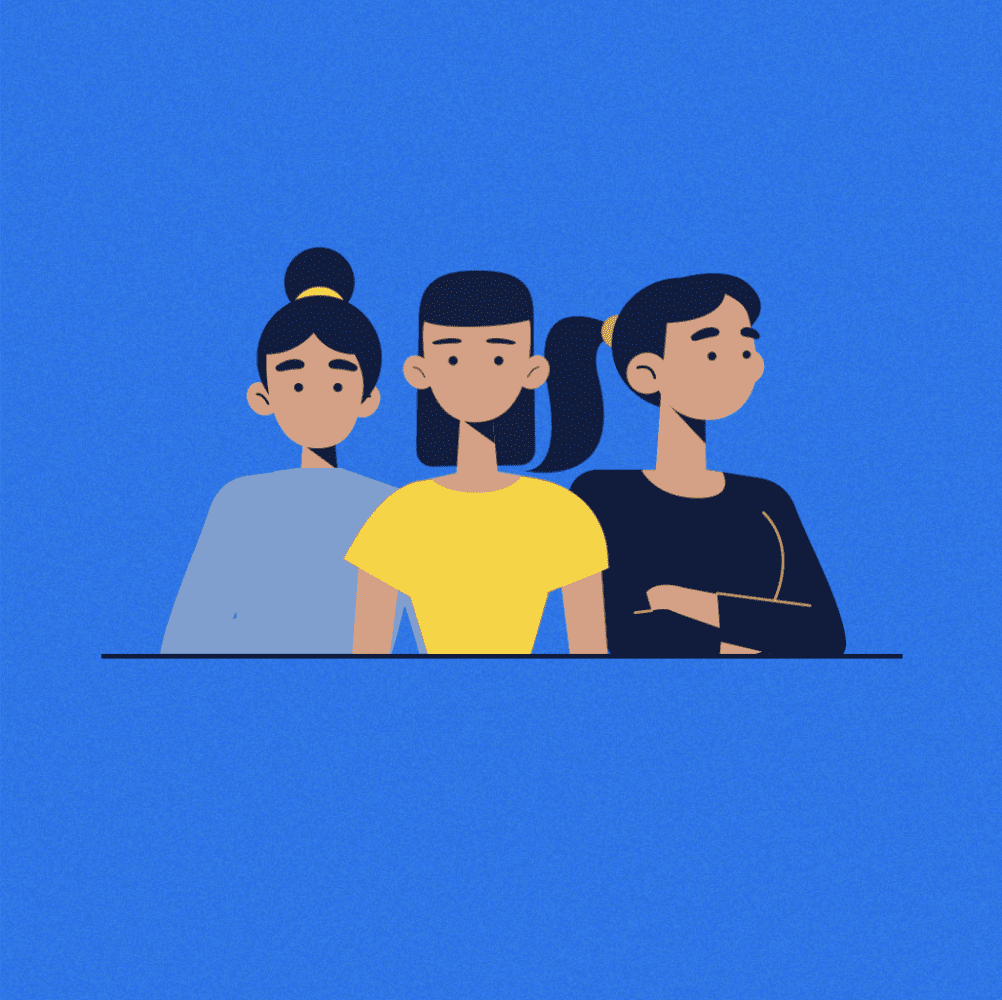by Bella Angela Del Rio
I remember at the beginning of March 2020, when cases of COVID-19 rose in the country, and several of my friends and I thought that this was just going to last for a few weeks or even months. But fast forward to today, it’s been more than a year since the start of the pandemic. Several countries are moving forward, some almost reaching herd immunity, and others are struggling to recover from the pandemic.
The expectations that we’ve had of a “back to normal” kind of world are slowly but surely getting there. I guess? The majority of schools are still in a distance-learning phase, several employees are working remotely, and many startups have adapted to the online space but there are also many that have closed down. In a report by UN Women, 66 percent of women reported mental health effects as a result of COVID-19 in the Asia and the Pacific region. To get a better understanding of this, a policy brief on the impact of COVID-19 on women explains the increase in unpaid care work as distance learning and closure of schools forced children out of school. Not only that, the senior population too had to be tended to at home as hospitals lack the capacity to accept non-covid related patients.
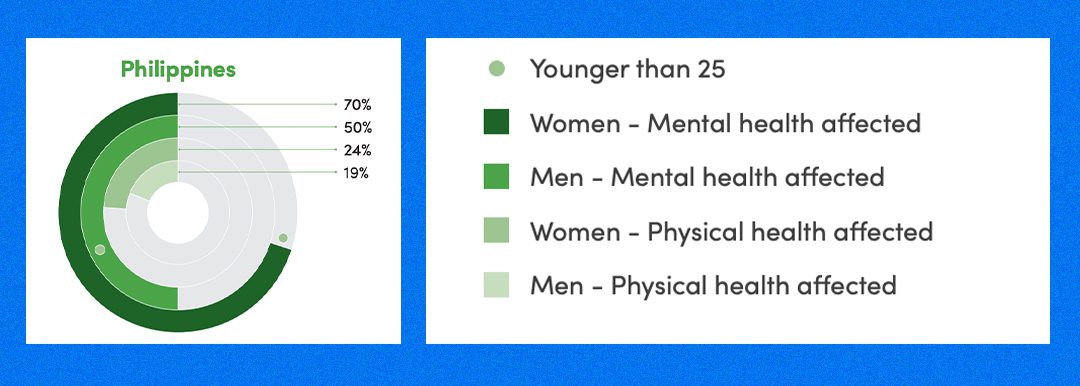
Taken from Unlocking the Lockdown (Source: UN Women)
The closure of schools made 87% of parents in the Asia and the Pacific region spend more time teaching their children. Out of 11 countries, the Philippines ranks as the 4th, with the highest percentage of women who reported that their mental health has been affected. The pandemic has not only affected business and our daily activities but has caused emotional strain on the lives of many, especially women. An increase in unpaid care work and lack of time on income-generating work has caused much stress and anxiety among women, mainly younger women and girls from the age of 10–24 years.
[READ MORE: Unlocking the Lockdown: The gendered effects of COVID-19 on achieving the SDGs in Asia and the Pacific]
I am Bella Angela Del Rio from the PhilDev Team. I have been working from home for the past few years as I do my day-to-day communications work where I design and write. The pandemic has been a tough one, it has actually hit me hard in the second year compared to the first. In some conversations that I’ve had, some of my friends raised frustrations, some showed signs of emotional hardship, and others were suffering from burnout. The statistic shown earlier was not just another set of numbers, they represent the lives of many women going through this battle. It’s been an emotional rollercoaster ride especially for those battling it out alone, so here is a mental health survival guide to help you out as we try to develop a little sense of normalcy in our lives.
We’ve taken the lens of three empowered women. Noreen Bautista, an entrepreneur. She is the co-founder of Panublix, an online textile sourcing platform and marketplace for Philippine weavers and garment makers. Zed Odilao, a BS Chemical Engineering major from the University of San Carlos in Cebu City. She is also one of our scholars from the PhilDev Science and Engineering Scholarship Program. And lastly, Patricia Siriban, an employee, mother, and post-graduate student who is currently working as the Program Officer of PhilDev Foundation. In this blog, they will be sharing some of their tips for coping with the work-from-home/distance-learning setting and how they are prioritizing their mental health.
So this October 2021, as we celebrate World Mental Health Day and International Day of the Girl, let’s check up on each other and let’s reevaluate the state of our mental health.
The question is, “How are you coping with all that’s going on now?”
Tip #1: Take the time for yourself to reflect
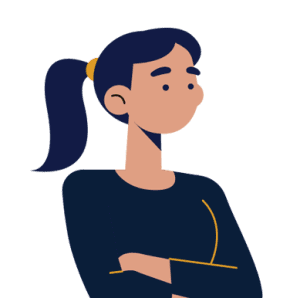
Often when we are so engrossed in a specific task or project that we are working on, it sometimes comes to a point where we have a difficult time taking a step back from what is in front of us. In these moments, it is good to hustle until we have done the best that we possibly could. But after that, we should reflect before moving on to the next best thing.
Noreen: Take the time in this pandemic to truly reflect on what makes you happy and contented, and build everyday habits to remind you of that. Being in the social impact space, we always ask what our purpose is, that is why we pursue our enterprises. Even purpose-driven ventures can burn you out or exhaust you.
You need to set up habits every day that allows you to reflect, give gratitude, and appreciate. For me, meditation and prayer, accompanied by exercise, self-care, and eating well, helped me develop some habits to keep me from burning out.
Patricia: Define what you want to do and your intentions in life. These will guide you towards the things that are important to you. What are your top three priorities in life?
Back then, there were days I would work until 8 pm and I caught myself being anxious and so overwhelmed. That is when I began to reflect, “Hmm why do I work? I work for my family and I work for myself.” and then I started to put some boundaries up.
Tip #2: Develop your support system
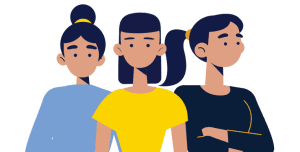
If you think you are alone in this battle, you aren’t. We are all going through something different in our lives which can become stressful. In those moments, we might begin to think that we can solve and get through those problems alone, but we don’t have to do that. Ask for help and seek advice from others, you’d be surprised how their response would help you out. Who knows? The next time around you might be of great help to them.
Noreen: I do miss the social interaction and the serendipity that you can get from meeting people face to face. It helps to have a good support system. Don’t bear the burden alone. Don’t be afraid to ask for help. Find people who you can confide in. They may be your co-founders or a mentor, a therapist, coach, or a friend. As long as you also have another soul to bounce thoughts and concerns with. Being in this entrepreneurial game is hard in itself. But it becomes less hard when you know you are not alone.
Zed: Something that really helped me multiple times during this pandemic is to just talk to someone, it need not be a therapist, it could be a friend or someone that you trust. Because we often get trapped in our thoughts where our minds could also be a prison. Personally, for me, it tends to get really negative if I just leave myself to my thoughts. So talking to people has really grounded me and helped me realize that everything is going to be okay.
Tip #3: Set up boundaries
Everyone will need something from you. Whether it be a job that you need to get done or studying for the exams that are coming up in a few weeks, you are entitled to a few hours of “me time”. You are allowed to take a step back, relax, and do whatever you need to do to take care and enjoy yourself.
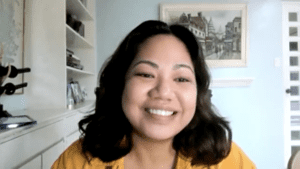 Patricia: When we began working from home, the line or boundary between work time and personal time started to become blurry. At times it would come to a point where if we think that we are capable of finishing a task right away, we would continue to push forward and not stop. Not realizing that it’s already 10 in the evening.
Patricia: When we began working from home, the line or boundary between work time and personal time started to become blurry. At times it would come to a point where if we think that we are capable of finishing a task right away, we would continue to push forward and not stop. Not realizing that it’s already 10 in the evening.
It is important that we set boundaries, especially with work. What I do is turn off all work notifications until 5 pm on Friday. And in terms of time management, I call myself a “serial planner”. I plan my week ahead of time and I keep a list of my tasks from Monday to Friday. In a way, I do this to not overwhelm myself with tasks and things to do.
Zed: I struggle with mental health a lot. It is an everyday struggle of questioning myself. “Am I going to be okay today?” “Am I going to be okay tomorrow?” Or “Am I going to be okay tonight?” That is the general idea of what I go through as an overthinker. What really helped me was advice that I’ve heard from somewhere else, “Rest is just as important as work. You are only as valuable as the work you do when you are awake.”
When I was a student, I had a mantra of me having to suffer or work as hard as I can, where I’d allocate as much time as I can as a student. I was constantly on edge as a student, with no personal life or social time, it was all about academics for me. When the pandemic hit, it taught me that you really need to take a breather, you really need to take some time off for yourself, because you can’t really give your best when you don’t have rest. Take time to rest and recharge yourself.
Tip #4: Go and get some sleep
Honestly, this is a tough one for many. In school, we have all experienced doing an all-nighter with our friends. Staying up late to finish a paper that is due at 7:00 am in the morning. Doing your best to crunch in those last few sentences and submitting your assignment right on the dot of 11:59 pm. Have you ever done one of these? If you did… Well, I have too.
Noreen: Contrary to popular belief, sleep is not for the weak. It’s actually a superpower, which can also help boost your immune system to defend against COVID-19 and many other diseases.
Zed: It is odd that at times we take pride in getting less sleep, “You’ve only had 2 hours of sleep? I had none at all!” I think it comes down to realizing what you value. Deep down we do things because we have reasons for them.
Compared to face-to-face student life, I just value getting as much work done as possible and thinking that it was a badge of honor to get less sleep and do more work. That is when I realized that my values are not intact, they weren’t aligned. So I think the first thing to do is refresh and take time to think and define your values.

Tip #5: Start a new hobby
Do you have any new interests or hobbies that you want to develop? Anything new you want to try out? You know, I really hated reading books (sorry to all those bookworms out there) but lately, I’ve been into reading productivity books, and it has been a blast. I may not have done it every single day, but I’ve noticed that I started developing a little sense of excitement as I turn each page. Try something new today!
Noreen: It also helps to pursue hobbies outside of your work. For me, I learned to lean more on my creative side by writing and even creating music which has been a hobby of mine ever since I was younger. There is such a thing called creative rest, where you allow the innate creativity in you to play and find flow. When you are in the state of flow you really feel that happiness and it even gives you energy as you pursue your professional work.
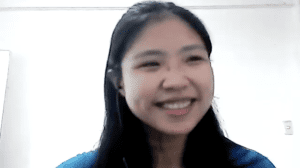 Zed: My main outlet is working out and going to the gym. I say that women are stronger than we think because I was a former fat kid and got bullied a lot for my appearance. I was never really that sporty or fit kind of kid. Now, I have been consistently going to the gym and my lifts are nearing 300 pounds each. Years before I told myself, “you will be able to squat and deadlift 300 pounds!” I always doubted this goal that I had set for myself and never thought it would be possible. But now I am doing it!
Zed: My main outlet is working out and going to the gym. I say that women are stronger than we think because I was a former fat kid and got bullied a lot for my appearance. I was never really that sporty or fit kind of kid. Now, I have been consistently going to the gym and my lifts are nearing 300 pounds each. Years before I told myself, “you will be able to squat and deadlift 300 pounds!” I always doubted this goal that I had set for myself and never thought it would be possible. But now I am doing it!
It is amazing to see how the gym that I go to is a male-dominated gym where I started as a girl in the cardio section, and no one really talked or listened to me. When I began to be consistent with my goals, it is so empowering to see now that there are so many girls that are hitting their PRs (personal records) in the gym! Women are stronger and more capable than people think and that makes me so happy!
Tip #6: Prioritize yourself too
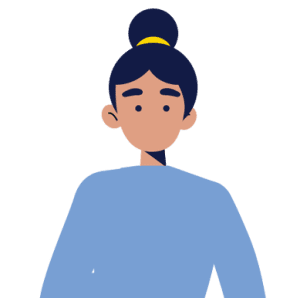 I heard this statement so many times but I have failed in living it out time and time again. You are allowed to say “no” to people to let yourself sleep in on the weekend, binge-watch movies, or do your 10-step skincare routine. Take the time off sometimes and enjoy life, because your life isn’t just to work, it’s to also create memories and live out happy moments.
I heard this statement so many times but I have failed in living it out time and time again. You are allowed to say “no” to people to let yourself sleep in on the weekend, binge-watch movies, or do your 10-step skincare routine. Take the time off sometimes and enjoy life, because your life isn’t just to work, it’s to also create memories and live out happy moments.
Zed: When you finally realize that you also value self-love and self-care then you also take time to prioritize health and realize that not everything is about working hard and achieving the next tasks.
Take time to be a beast at academics, but also a beast at taking care of yourself. Who else is going to do the work? It is you. You need to be the one to take care of yourself
Patricia: Since the pandemic, the main thing that changed was the time allocated to working out. Before the pandemic, I worked out every day. Now that I’m doing it all from home, I limit my workout routine to 30 mins a day, when I can. I make sure to practice mindfulness and yoga every morning.
I also set my intentions for the day. When we set that kind of intention, we are also able to say to ourselves that, today I am going to have a good day. Sometimes it can be really powerful, when you just decide that, “today nothing is going to bother me. I will have patience.” It becomes your affirmation. This helps a lot especially when I get overwhelmed.
Noreen: Take care of yourself first. We are 2 years into this pandemic in this perpetual state of emergency. As the flight steward says before a plane takes off in case of emergency, always make sure to put your oxygen mask on first before you assist others. So this is the same for everything. We cannot be of service to our customers, our team, and all the stakeholders we are responsible for if we ourselves are not in a good state.
Tip #7: Provide a safe space for others
As mentioned earlier, 70% of women’s mental health has been affected by the COVID-19 pandemic in the Philippines. Let’s not let this percentage grow, let’s be kind to one another, and let’s provide safer spaces for others to easily open up to us.
Patricia: If you have a child, encourage curiosity! Allow them to ask all the “why” questions they have, and try to answer them all. It will make them love learning even more and develop their own opinions and beliefs. Let them make mistakes and get a few scabs along the way. It will allow them to become more critical in their decision-making and be comfortable with rejection and failure. I guess with these 2 reasons, we can raise resilient children who are adaptable to change regardless of what industry they choose to enter.
Noreen: One of our values as a company is to be human-centered. We believe that everyone should be able to bring their full selves to work. It does not matter whether you are a parent, a member of a minority, at the end of the day we are all equal as human beings. We respect the time commitments of our team especially with regards to their personal life. We’re also not afraid to show vulnerability. I am personally honest with my team when there are tough times because it opens up the conversation that they can also have this safe space to be vulnerable and they won’t be judged.
How has your two-year journey through this pandemic been like? Was it difficult? Did you reach that point of burnout? Or have you lost a loved one to COVID? Working and studying from home is a real challenge. And trying to show that you are okay through it all is even more challenging. So kudos to you for pulling through! I can’t even imagine what you might be going through right now, but remember that you aren’t alone through it all. Always ask for help and support from others. Most importantly, don’t forget to take care of yourself.
Let’s together, lower that 70 percent! There are people and real lives behind this number, so we’ve got to take care of each other. Happy Mental Health Day and International Day of the Girl!
